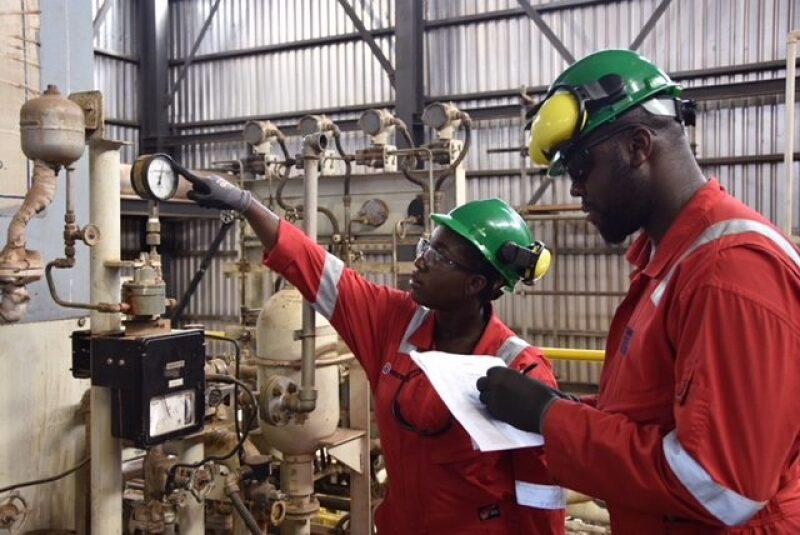Explore Our Bill Payment Services:

- Salary And Allowance
- Engineers Salary
- Ghana
Salary And Allowance Structure Of Chemical Engineers In Ghana
When it comes to career paths that balance intellectual challenge, financial reward, and wide industry application, Chemical Engineering stands tall in Ghana. Whether in the oil and gas sector, pharmaceuticals, food processing, or even academia, chemical engineers are constantly in demand for their ability to transform raw materials into usable, safe, and profitable products. But one big question aspiring and practicing engineers often ask is: “How much do chemical engineers really earn in Ghana, and what allowances come with the job?”
This post takes a deep dive into the salary and allowance structure of chemical engineers in Ghana, looking at earnings across different levels of experience, sectors, and positions. By the end, you’ll have a clear picture of what to expect in terms of compensation, whether you’re just stepping out of university or eyeing an executive role in one of the country’s top companies.
Understanding the Chemical Engineering Pay Landscape in Ghana
Chemical engineering salaries in Ghana vary widely. Factors such as industry type, company size, job location, level of experience, and whether the employer is in the public or private sector all play a role in determining pay.
On average, chemical engineers earn around GHS 48,000 annually, which translates to about GHS 4,000 monthly. That’s the general ballpark figure, but things get more interesting when we break down the ranges.
-
Entry-level salaries (for fresh graduates or trainees) tend to fall between GHS 2,500 and GHS 6,000 per month, depending on the company.
-
Mid-level engineers, with about 5–10 years of experience, often earn GHS 8,000–12,000 monthly, not counting allowances.
-
Senior managers and executives can rake in anywhere between GHS 20,000 and GHS 80,000 per month, particularly in large corporations like the Ghana National Petroleum Corporation (GNPC).
Now, let’s break this down more systematically.
Entry-Level Chemical Engineering Salaries
Fresh out of university, chemical engineers typically start at salaries ranging from GHS 2,500 to GHS 6,500 per month. The figure depends on where you land your first job. For example:
-
Manufacturing companies and smaller private firms may offer between GHS 2,500 and GHS 4,000 monthly.
-
Large corporations, particularly in the oil and gas or energy sector, often start graduates at GHS 4,500–6,500 monthly.
On top of this, some organizations provide allowances for transportation, housing, or meals. These can add an extra GHS 1,000–1,500, pushing total monthly take-home pay closer to GHS 7,000–8,000.
For fresh graduates, these figures are considered quite competitive compared to other fields in Ghana, where many degree holders earn below GHS 2,000 a month.
Mid-Level Engineers: The 5–10 Year Mark
Once chemical engineers gain about five years of solid experience, their earning potential rises significantly. At this stage, many professionals are no longer trainees but specialists or senior engineers responsible for supervising projects, ensuring compliance, or managing small teams.
-
Salaries typically range between GHS 8,500 and GHS 12,000 per month.
-
Allowances can add an extra GHS 2,000–3,000 monthly, bringing total pay to GHS 10,500–15,000.
In some high-paying industries like oil, gas, and mining, mid-level engineers can even earn up to GHS 15,000–20,000 monthly if bonuses are included.
Senior-Level and Leadership Roles
For engineers who climb the career ladder into managerial and executive positions, the salary range expands sharply. Let’s look at what’s common in major organizations:
-
Project Managers: GHS 12,000–18,000 monthly salaries, plus allowances of GHS 3,500–5,000, bringing total pay to around GHS 15,500–23,000.
-
Department Heads / Senior Managers: GHS 20,000–30,000 salaries with allowances between GHS 5,000–8,000, totalling GHS 25,000–38,000 monthly.
-
Deputy Directors: Salaries climb to GHS 35,000–45,000, with allowances adding GHS 7,000–10,000, making overall pay between GHS 42,000–55,000 monthly.
-
Chief Executives: At the very top, executives such as CEOs at GNPC may earn GHS 60,000–80,000 per month, with allowances adding another GHS 12,000–15,000, giving them a total monthly package of GHS 72,000–95,000 or more.
These senior-level earnings place chemical engineering leaders among the top-paid professionals in Ghana.
Salary vs. Allowances: Understanding the Difference
It’s important to distinguish between salary and allowances, because the latter often makes up a significant portion of total pay.
-
Salary: The fixed monthly wage tied to the job role and position.
-
Allowances: Additional benefits such as housing support, transport stipends, risk allowances, health benefits, and performance bonuses.
For mid-level to senior-level chemical engineers, allowances can make up 20–30% of total compensation. For instance, a project manager earning GHS 15,000 might actually take home GHS 20,000 after allowances are added.
This means that when evaluating job offers, engineers should not only look at the base salary but also at the structure of allowances provided.
The GNPC Example: Structured Compensation in Action
The Ghana National Petroleum Corporation (GNPC) provides a good example of how structured salary and allowance systems work for engineers:
| Position | Monthly Salary (GHS) | Allowances (GHS) | Approx. Total Pay (GHS) |
|---|---|---|---|
| Graduate Trainee | 4,500 – 6,500 | 1,000 – 1,500 | 5,500 – 8,000 |
| Junior Engineer | 5,500 – 8,000 | 1,200 – 2,000 | 6,700 – 10,000 |
| Engineer / Specialist | 8,500 – 12,000 | 2,000 – 3,000 | 10,500 – 15,000 |
| Project Manager | 12,000 – 18,000 | 3,500 – 5,000 | 15,500 – 23,000 |
| Department Head | 20,000 – 30,000 | 5,000 – 8,000 | 25,000 – 38,000 |
| Deputy Director | 35,000 – 45,000 | 7,000 – 10,000 | 42,000 – 55,000 |
| CEO | 60,000 – 80,000+ | 12,000 – 15,000 | 72,000 – 95,000+ |
This table shows how compensation grows significantly with seniority, and how allowances play a crucial role in boosting overall income.
How Chemical Engineers Compare to Other Professions
To put things in perspective, many Ghanaian graduates in non-technical fields earn under GHS 2,000 per month. Even professionals in areas like teaching or banking may earn less than GHS 4,000 monthly in their early years.
This makes chemical engineering one of the more lucrative fields, especially in technical industries like oil, gas, and energy, where pay is significantly higher than the national average.
Factors That Influence Salaries in Ghana
Several factors can affect how much a chemical engineer earns in Ghana:
-
Industry Sector: Oil and gas engineers usually earn more than those in food processing or teaching roles.
-
Company Size and Location: Larger multinational corporations or companies in Accra often pay more than smaller local firms or companies based outside major cities.
-
Experience Level: As shown, salaries can grow tenfold from entry-level to senior executive roles.
-
Specialization: Engineers with niche skills in areas like petroleum refining, process optimization, or safety management can negotiate higher salaries.
-
Performance Bonuses: Some companies tie bonuses to project success, safety performance, or profitability, which can add thousands of cedis annually.
Sample Monthly Compensation Breakdown
Here’s a simplified snapshot of chemical engineering pay across different career stages:
| Career Stage | Base Salary (GHS) | Allowances (GHS) | Total Monthly Pay (GHS) |
|---|---|---|---|
| Entry-Level | 4,000–6,500 | 1,000–2,000 | 5,000–8,500 |
| Mid-Level | 8,500–12,000 | 2,000–3,000 | 10,500–15,000 |
| Project Manager | 12,000–18,000 | 3,500–5,000 | 15,500–23,000 |
| Department Head | 20,000–30,000 | 5,000–8,000 | 25,000–38,000 |
| Deputy Director | 35,000–45,000 | 7,000–10,000 | 42,000–55,000 |
| CEO | 60,000–80,000 | 12,000–15,000 | 72,000–95,000+ |
Final Thoughts
The salary and allowance structure of chemical engineers in Ghana shows a profession with immense growth potential. From modest beginnings of GHS 2,500–6,500 at entry-level, chemical engineers can rise to earn tens of thousands per month as executives in large organizations.
Allowances play a critical role, often making up 20–30% of overall pay. Engineers in the oil and gas sector, in particular, enjoy some of the highest salaries in the country, while those in smaller industries still earn above the national average for graduates.
For aspiring engineers, the clear message is this: the more experience, specialization, and leadership responsibility you gain, the higher your earning potential climbs. Chemical engineering is not just a profession—it’s a financially rewarding career path in Ghana.









